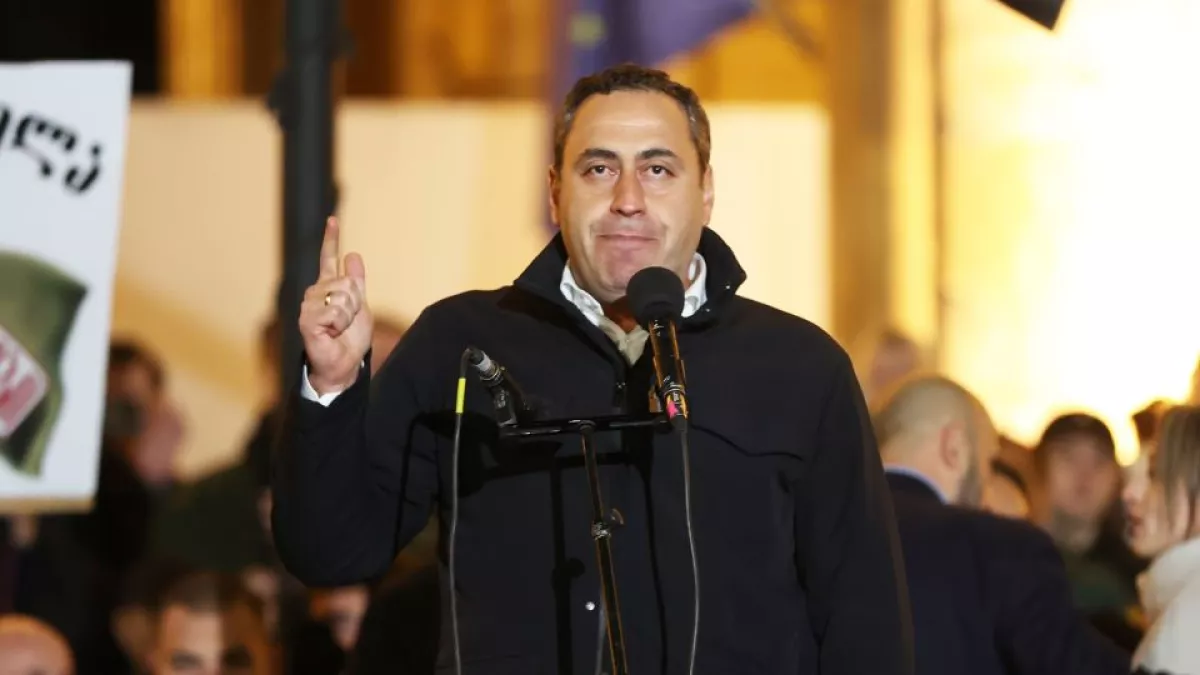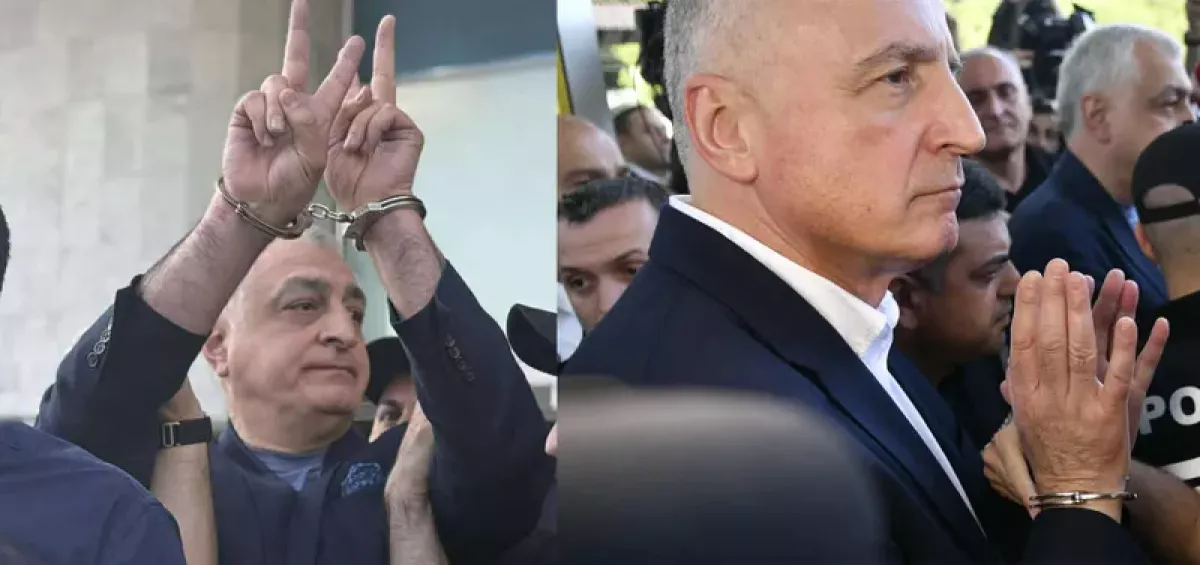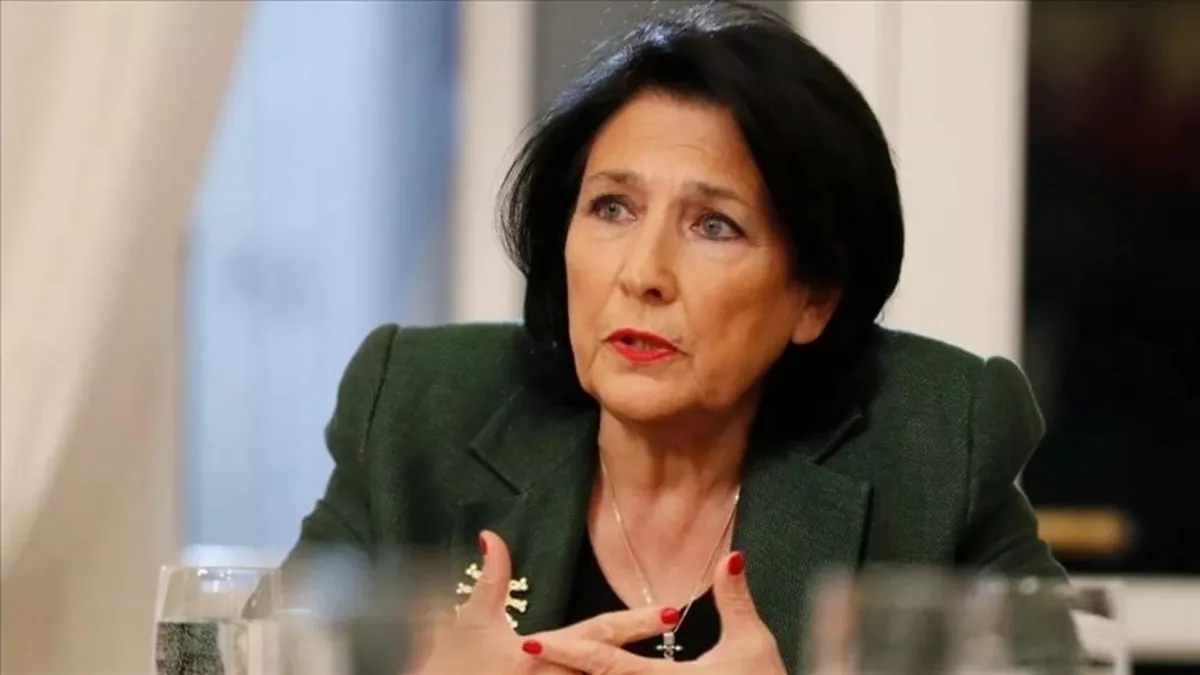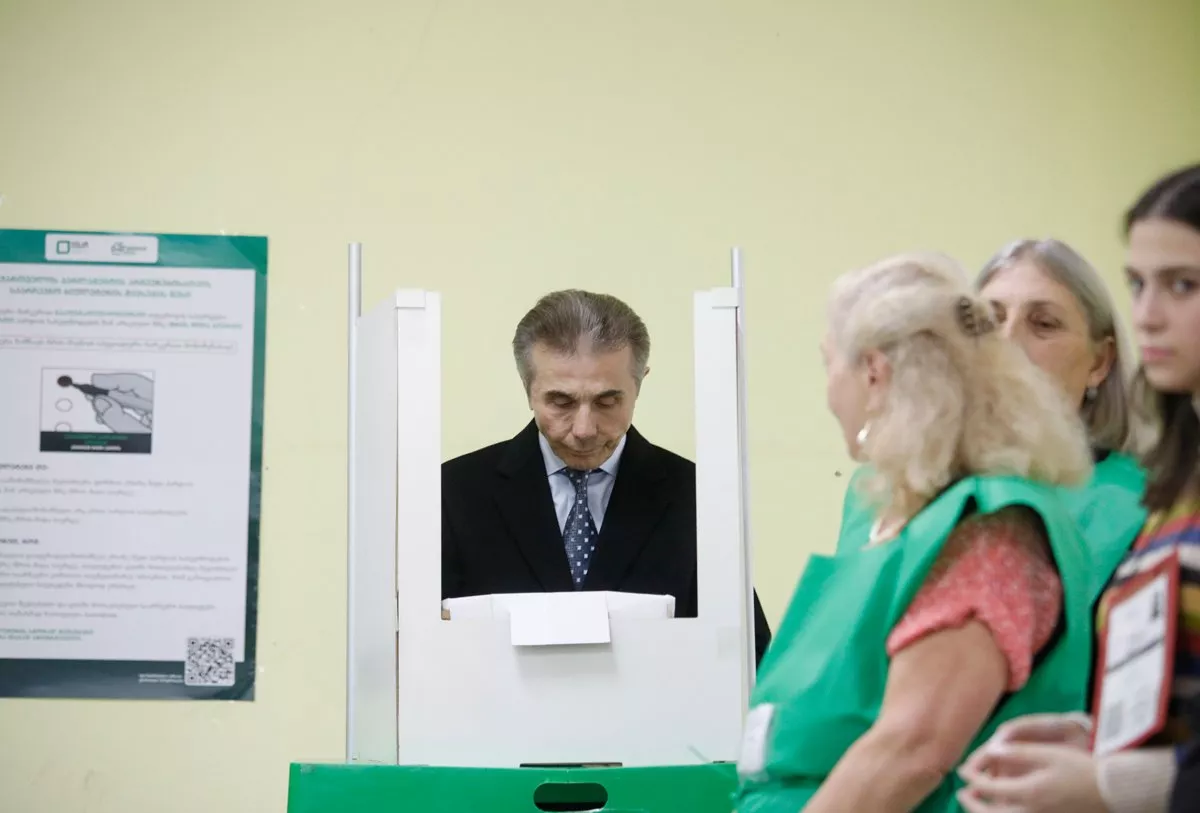Georgia: Another “hot October” coup attempt thwarted No room for a “Maidan”
On June 24, 2025, the Tbilisi City Court found the leader of the opposition party "Strategy Aghmashenebeli," Giorgi Vashadze, guilty under Article 349 of the Criminal Code of Georgia for failing to comply with the demands of the temporary investigative parliamentary commission and sentenced him to 7 months in prison, with a ban on holding public office for two years.

On May 23, 2025, the same court, on similar charges, found guilty and arrested the founders and leaders of the opposition coalition "Strong Georgia" and its member parties: Mamuka Khazaradze and Badri Japaridze (both sentenced to 8 months in prison), as well as the leader of the "Coalition for Changes" and the party "Girchi — More Freedom," Zurab Japaridze (7 months in prison).
Thus, ahead of the local elections scheduled for October 4, 2025, the opposition in Georgia has been effectively "decapitated." Previously, its representatives openly stated their intention to use the elections as a pretext to organise a "Maidan" and stage a coup d'état.

Mamuka Khazaradze himself announced the creation of a "Protest Tbilisi Headquarters" and the recruitment of "50 independent fighters — professionals, honest citizens who will never accept the ‘Russian occupation’." The pro-Western opposition uses the term "Russian occupation" to refer to the legitimate government of the ruling party, Georgian Dream.
On June 23 and 24, 2025, the Tbilisi City Court, acting within the law, neutralised key opposition leaders for violating legislation. This created conditions to thwart the announced attempt at a new "Maidan" or "colour revolution" already at the preparatory stage.
Meanwhile, nearly all successful attempts at externally inspired “colour revolutions” in other countries took place under conditions of complete impunity for their leaders. The experience of the Ukrainian “Maidan” demonstrated that its organisers coordinated mass protests and provocations without hindrance, sending their supporters to face police batons, water cannons, and rubber bullets, and later arming them and directing them into clashes with law enforcement.
Even at the height of the confrontation in Kyiv, neither the police nor the courts took any action against the main coordinators of the unrest. What did this ultimately lead to? For the sake of the coup d’état in Kyiv, ordinary protesters were sacrificed. The country lost territory and became embroiled in a protracted war. Meanwhile, the “Maidan” leaders not only escaped harm but, having seized power, greatly increased their wealth.

In Georgia, the opposition is attempting to follow the same scenario — to come to power at the cost of others’ blood and “sacred victims” among ordinary citizens. The de facto leader of the pro-Western opposition, Salome Zourabichvili, during the riots she organised at the end of last year, even called on schoolchildren to take part in protests, effectively intending to “throw children into the furnace of revolution.”
However, unlike in Ukraine, Georgia’s judicial and law enforcement systems stand guard over the rule of law. Here, not ordinary protest participants—often misled—but their organisers and coordinators are held accountable.
Moreover, leaders of the pro-Western opposition can be held responsible for far more serious crimes. This is the task of the temporary parliamentary commission, established at the beginning of 2025 to investigate violations committed during the rule of the “United National Movement” (UNM) from 2003 to 2012.
Later, the commission’s mandate was expanded — it now also investigates economic crimes. For example, Badri Japaridze and Mamuka Khazaradze were summoned for hearings in connection with the 2009 confiscation of property belonging to the company “Magnat.” At that time, however, they were not involved in politics. Both are co-founders of the largest bank, TBC, which had lent to this company and was involved in the transaction under review.
The commission, chaired by Thea Tsulukiani, is scheduled to complete its work in early July 2025. Based on its findings, the Georgian Dream party plans to file a lawsuit with the Constitutional Court seeking to ban the activities of the United National Movement (UNM) party and several other opposition groups that emerged from it.
Despite accusations from the opposition and its Western backers of “repression” and “terror,” the Georgian authorities act strictly within the law, protecting the constitutional order from the threat of a “Maidan” posed by structures linked to the UNM and former President Mikheil Saakashvili.

Unlike the opposition, which calls for the violent overthrow of the government and violates the law and the results of the October 26, 2024 elections, the authorities strictly observe legal procedures. Meanwhile, the opposition deliberately armed protesters with pyrotechnics and Molotov cocktails.
Recent events indicate growing public distrust towards the opposition. Even critical-minded citizens have grown tired of the daily, increasingly marginalised demonstrations on Rustaveli Avenue, with participation steadily declining.
The opposition failed to mobilise the “street” even to prevent the arrest of its leaders. Mamuka Khazaradze and Badri Japaridze were detained without resistance at the party office. Former President Salome Zourabichvili was also present there and responded by throwing a public tantrum on social media, issuing an urgent appeal to the West: “TerrorinGeorgia while world attention is turned to Iran and Israel, the pro Russian pro Iranian Ivanishvili regime deepens repression: Four political leaders in jail, four awaiting sentences while PM Kobakhidze publicly warns the opponents: ‘all in jail’ [...] The reason why Eu and the US should pay urgent attention to Georgia is not only Democracy, Human rights, European future. It is highly geopolitical: only a pro western Georgia can prevent a monolithic axis Russia- Caucasus-Iran, that would control the Black and Caspian Seas. SOS.”
However, as has long been clear, it is precisely the destructive actions of the opposition that pose a real threat to peace and stability in the country and risk disrupting the vital Middle Corridor for the region.
Although the international reaction to Zourabichvili’s statements remains cautious for now, this does not mean that Georgia will avoid further attempts at external interference. Forces encouraging the opposition to engage in illegal actions are unlikely to have abandoned their plans to turn Georgia into yet another “hot spot.”
Any escalation of internal tensions in Georgia could seriously complicate international communications amid the ongoing war in Ukraine and instability in the Middle East.
Vladimir Tskhvediani, Georgia, exclusively for Caliber.Az








